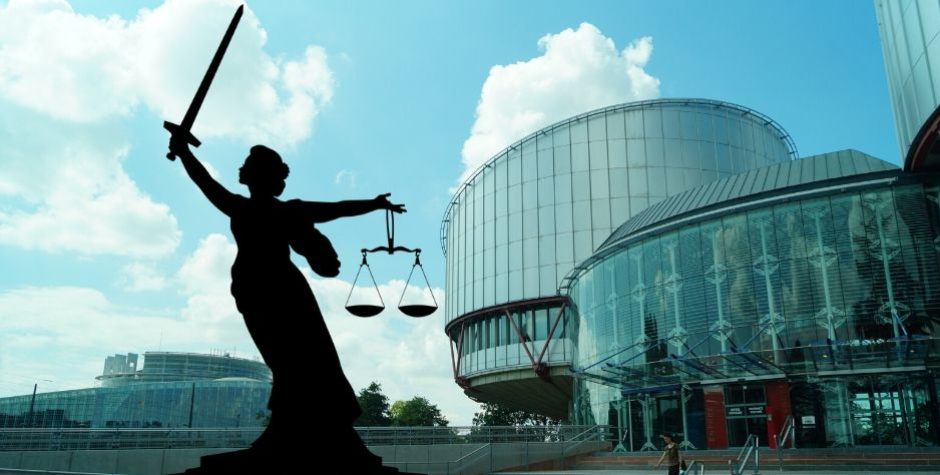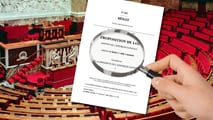This document contains a series of recommendations for measures to improve the independence and impartiality of the European Court of Human Rights. It has been drafted specifically for the “The Drafting Group on issues relating to judges of the European Court of Human Rights (DH-SYSC-JC)” and the Committee on Legal Affairs and Human Rights of the Parliamentary Assembly of the Council of Europe.
These proposals have been reviewed by several judges and former judges of the ECHR.
- Nominate candidates with high-level judicial experience
- Require the publication of declarations of interest
- Ensure the sincerity of the curriculum vitae submitted by candidates
- Avoiding nepotism
- Apply the same selection rules to the appointment of ad hoc judges
- Improving the transparency of NGO action before the ECHR
- Ensuring the transparency of the Registry to reinforce the guarantees of its impartiality
- Avoiding the national judge being appointed as judge-rapporteur in important cases
- Informing in advance the parties of the composition of the bench
- Establishing a challenge procedure in line with the Court’s requirements for national courts
Chronology
On March 28, 2012, the Committee of Ministers adopted its Guidelines on the selection of candidates for the post of judge at the European Court of Human Rights.
In 2018, the Steering Committee for Human Rights (CDDH) published its Report on the process of selection and election of judges of the European Court of Human Rights.
In March 2020, the ECLJ published the report NGOs and the Judges of the ECHR, 2009-2019 which revealed that between 2009 and 2019 18 judges of the ECHR were on 88 occasions in an objective situation of conflict of interest by judging cases brought or supported by the NGO they themselves had founded, directed or worked for prior to their appointment to the ECHR. The report also revealed a frequent lack of transparency in the work of NGOs before the Court.
Between 2020 and 2022, the ECLJ identified 34 new cases of conflict of interest between ECHR judges and NGOs.
Following the publication of this report, many jurists and elected officials spoke out. Several PACE members have addressed written questions to the Committee of Ministers between 2020 and 2022[1].
At the ministerial meeting in Athens in November 2020[2], the decision was taken “to evaluate again by the end of 2024, in light of further experience, the effectiveness of the current system for the selection and election of the Court’s judges.”
On April 8, 2021, the Committee of Ministers informed the members of parliament of this decision, in response to three of their written questions concerning conflicts of interest (Doc. 15258). The Committee of Ministers did not dispute the reality of the conflicts of interest in question; it recalled the need to “to guarantee the highest standard of qualifications, independence and impartiality of the Court’s judges”, and indicated the measures previously taken to this end.
On June 21, 2021, the ECHR revised its “Resolution on Judicial Ethics” to strengthen the obligations of integrity, independence, and impartiality of judges. Echoing the ECLJ report, the resolution now mandates that judges be independent of any institution, including any “organization” and “private entity.” The text adds that judges “shall keep themselves free from undue influence of any kind, whether external or internal, direct, or indirect. They shall refrain from any activity, expression and association, refuse to follow any instruction, and avoid any situation that may be considered to interfere with their judicial function and to affect adversely public confidence in their independence.” The previous text was much more succinct. On impartiality, the new text makes explicit the prohibition of being “involved in dealing with a case in which they have a personal interest”. Judges “shall refrain from any activity, expression and association that may be considered to affect adversely public confidence in their impartiality.”
On July 26, 2021, the Committee of Ministers replied to two further written questions from PACE members (Doc. 15345). In its reply, it stated, inter alia, that “the Court’s Committee on Working Methods is reviewing the existing Rules of Court, including Rule 28.” This Rule, entitled “Inability to sit, withdrawal or exemption” addresses, among other things, the issue of conflicts of interest, but does not provide for a recusal procedure.
On July 11, 2022, following the November 2020 Ministerial Meeting, the Steering Committee for Human Rights (CDDH) mandated a “Drafting Group on Issues Relating to Judges of the European Court of Human Rights (DH-SYSC-JC)” to prepare, before December 31, 2024, a “Report evaluating the effectiveness of the system for the selection and election of the Court’s judges and the means to ensure due recognition for judges’ status and service on the Court and providing additional safeguards to preserve their independence and impartiality.” This Committee met for the first time in September 2022 and will hold its next meeting on January 25-27, 2023.
On October 12, 2022, a petition entitled Putting an end to conflicts of interest at the ECHR, signed by 60,000 European citizens, was submitted to the Parliamentary Assembly of the Council of Europe, under Rule 71 of its Rules of Procedure. It asks the PACE to include this subject on its agenda.
On November 31, 2022, a motion for a resolution entitled The serious problem of conflicts of interest at the European Court of Human Rights was tabled in the Parliamentary Assembly of the Council of Europe (Doc. 15661). Although the revision by the ECHR of its Resolution on judicial ethics is a positive signal, it remains insufficient. Indeed, the examination of the Court’s functioning leads to the identification of a series of measures whose implementation would ensure that the Court respect the same standards it imposes on national jurisdictions in terms of judicial independence and impartiality.
The following list is not intended to be exhaustive.
I. At the judicial selection stage
- Nominate candidates with high-level judicial experience
Most of the obvious cases of conflicts of interests at the ECHR involve members of the Court previously employed by NGOs and active at the Court but who have no or very little experience of the judicial profession. These are mostly conflicts of interest between the judge and his or her former NGO when the latter is a party or third party to the case.
These judges may also decide cases on politically sensitive issues on which their former NGO was active, which may legitimately call into question their impartiality in the eyes of one or both parties to the case. Finally, being from an NGO is no guarantee of independence from the government, as large NGOs have often close ties to the government.
The best way to avoid such conflicts of interests in the future would be to no longer appoint people from, or with close ties to activist organizations and lobbies to the Court. This decision would also raise the level of qualification of the judges of the ECHR. Indeed, only half of the members of the ECHR have had experience as judges before their nomination, the others being mostly lawyers and teachers. Of course, these may have judicial qualities and aptitudes, but this is not guaranteed. More generally, it is problematic that some members of the ECHR are less qualified than the national judges on whose decisions they rule.
It would be consistent for the position of judge at the ECHR to be given to magistrates from the highest national courts, as is usually the case in the practice of some State Parties (such as France). By comparison, the judges of the CJEU are more likely to come from national courts[3]. Moreover, the professional judges would have been familiar with, and subject to judicial ethics before their appointment to Strasbourg, which contributes to the guarantee of their independence and impartiality.
Consequently, it would be appropriate to recommend to the State Parties and the Advisory Panel, respectively, that they no longer propose or validate the candidacy for the position of judge of persons coming from, or linked to, militant organizations active at the ECHR, and to ask candidates to declare their relations with any organization active in the Court. This could be done in the application form.
- Require the publication of declarations of interest
The Committee of Ministers, in its recommendation CM/Rec(2010)12 entitled “Judges: independence, efficiency and responsibilities”, states that “[h]aving regard to the necessity of avoiding actual or perceived conflicts of interest, member states may consider making information about additional activities publicly available, for instance in the form of registers of interests” (§29). To this end, members of the Court of Justice of the European Union[4] and many national supreme courts, notably in France and the United States[5], are required to publish such a declaration of interests, as are parliamentarians and members of the Parliamentary Assembly. This is not the case for judges of the European Court of Human Rights.
It would therefore be appropriate:
- on the one hand, the Committee of Ministers should require candidates for the office of judge to publish a declaration of interests, which should be attached to the application form;
- on the other hand, to suggest that the Court amend its Rules of Procedure to establish such a periodic obligation for sitting judges.
- Ensure the sincerity of the curriculum vitae submitted by candidates
It appears that the curriculum vitae of some judges and candidates are not accurate or exhaustive. More seriously, some judges seem to have “enhanced” their curriculum vitae, for example by improperly giving themselves the title of lawyer or lecturer. Such facts are obviously likely to damage the credibility of the Court.
Consequently, candidates should be asked to justify their functions, titles and diplomas, and these supporting documents could be annexed to the application form and sent to the Advisory Panel and the Parliamentary Committee on the Election of Judges to the European Court of Human Rights.
- Avoiding nepotism
Sometimes candidates have close family ties to politicians, members of governments or parliaments. Recently, the existence of such a link caused the rejection of a list (Poland). In contrast, the last Albanian list was not rejected even though it included a brother-in-law of the Minister of the Interior and a cousin of the Prime Minister[6], who was finally elected. This form of nepotism can undermine the credibility of the court and the independence and impartiality of the judges.
Consequently, candidates should be asked to declare, in their application form, any relationship to a person holding an important political responsibility.
- Apply the same selection rules to the appointment of ad hoc judges
The appointment of ad hoc judge may be made when the elected judge is prevented from sitting, withdraws or is excused from sitting, or if such a judge fails to attend due to resignation or departure[7]. The process of selection and appointment of ad hoc judges is at the discretion of governments and is not subject to the procedure applicable to permanent judges under article 22 of the Convention. As a result, ad hoc judges are not subject to evaluation or election within the Council of Europe. Protocol 14 only partially remedied the situation by allowing the Court to choose between the ad hoc judges appointed by each government. To date, the ECHR publishes the names of these ad hoc judges and the State party that appointed them, without further details.
Therefore, at a minimum, the publication of the curriculum of these ad hoc judges, as well as their declarations of interest, should be required. In addition, the existing regime for the selection and appointment of permanent judges should be applied to ad hoc judges, as far as possible.
II. At the stage of lodging the application: ensuring transparency of interests
- Improving the transparency of NGO action before the ECHR
It frequently happens that applications are lodged on the initiative or with the support of NGOs, without their being mentioned in the application and the procedure. The mention of NGOs in these proceedings would ensure greater transparency, which can be particularly useful when a judge or a member of the registry comes from this organization.
It is also common for third-party interveners to act in concert with one or another of the parties to the proceeding, and not actually be a true “third” party, thereby undermining fairness between the parties. Sometimes an NGO may even informally file a petition, provide representation for the petitioner, and simultaneously act as a third party[8].
Consequently, on the one hand, applicants could be recommended to declare voluntarily whether their application is filed with the collaboration of an NGO, and on the other hand, third party interveners could be asked to declare, in their application to intervene, their possible links with the main parties.
III. At the stage of the examination of applications: ensuring the transparency of the procedure
- Ensuring the transparency of the Registry to reinforce the guarantees of its impartiality
The European Court has ruled that the principles “concerning the impartiality of a court apply to jurors just as they do to professional and lay judges, as well as other officials performing judicial functions, such as lay assessors and registrars or legal secretaries (Bellizzi v. Malta, 2011, § 51)”[9]. This requirement should thus also apply to the ECHR’s own registry.
The Registry of the ECHR plays a central role in the administration of justice. It is the registry that filters the applications submitted and prepares the draft rulings. When an application is decided by a panel, the judges deliberate on the basis of the draft judgment prepared by the registry and the judge-rapporteur, generally without consulting the original file. The identity of the registry lawyer in charge of the case is generally not communicated to the parties: only his or her initials appear in the correspondence.
This situation raises problems of transparency, fairness between the parties, and potentially of partiality.
The opacity of the composition of the Registry seriously undermines the transparency of the institution. Transparency is an essential condition for any democratic control of institutions. The ECHR should follow the example of the Court of Justice of the European Union and the Inter-American Court of Human Rights[10], which publish the list of members of their registries. The fact that the staff of the ECHR Registry is recruited without a prior administrative enquiry reinforces the need for transparency of the Registry.
This also poses a problem of fairness, as only those familiar with the Court’s staff can identify the person in the Registry in charge of their case by initials and section.
This raises a problem of partiality, as members of the Registry may come from activist organisations active in the Court or may take a public position on issues under consideration by the Court or even the section to which they are assigned. This is the case, by way of illustration, of the series of cases brought since 2021 against Poland on abortion: several legal members of the Registry have been publicly active on this subject, such as Rafał Sokół and Marcin Sczaniecki. It is legitimate, in this case, that the parties do not want their case to be assigned to such a member of the Registry.
Therefore, it would be appropriate
- on the one hand, to communicate to the parties the name of the member or members of the Registry in charge of their case
- and on the other hand, to publish the list of the members of the Registry of the ECHR.
- Avoiding the national judge being appointed as judge-rapporteur in important cases
The European Court differs from other international courts in that it provides for the presence of the judge elected in respect of the State concerned in an application. This practice is intended to strengthen the confidence of member states and litigants, limiting the recurrent criticism of a court composed of “foreign judges”. Moreover, statistics show that national judges are less inclined than other judges to condemn their State of origin[11]. This is even more true for ad hoc judges. This observation gives rise to criticism on the partiality of judges in cases involving the State under which they have been appointed.
However, the national judge has the advantage of being familiar with the language and legal system of his country, which enables him to decide the case on his own, unlike other judges who are then more dependent on the Registry.
Without going so far as to recommend a radical change in this practice, it seems legitimate to recommend that the judge elected in respect of the State involved in the case should no longer be designated as judge rapporteur, when the case is deemed sensitive or important.
At the very least, to improve the transparency of the procedure, the name of the judge-rapporteur should be indicated in the judgment, as is the practice in other jurisdictions.
IV. At the trial stage
- Informing in advance the parties of the composition of the bench
The right to a judge includes the right of litigants to know in advance which judge will hear their case. It is a component of the requirement of publicity of justice, which protects the parties “against the administration of justice in secret with no public scrutiny; it is also one of the means whereby confidence in the courts can be maintained. By rendering the administration of justice transparent, publicity contributes to the achievement of the aim of Article 6 § 1 – namely a fair trial, the guarantee of which is one of the fundamental principles of any democratic society”[12].
However, this requirement is not respected in the procedure before the ECHR. Indeed, in most cases, the identity of the judge(s) who ruled on an application is only communicated to the parties after the judgment, when it is published. Only in the exceptional case of referral of the case to the Grand Chamber are the parties informed of the identity of their judges before the judgment.
The fact that the parties know to which section of the Court their case has been assigned is not sufficient. Indeed, the right to a judge does not appear to be sufficiently guaranteed by the assumption that an applicant could deduce the identity of the judges likely to adjudicate his or her case from the Court’s correspondence that his or her application has been communicated to one or others of its sections.
The breach is even more serious when the case is tried by a single judge or by an ad hoc judge, whose identities cannot even be assumed by the parties.
Moreover, this lack of transparency in the proceedings renders ineffective the right of the parties to request the recusal of a judge. This right of recusal is an essential component of the right to a fair trial.
The failure is also very visible with regard to the judge deciding on interim measures. By way of illustration, the problem arose recently in the context of an emergency referral to the Court, on the basis of Rule 39 of the Rules of Court, by parents asking the Court to suspend the execution of the decision of a hospital to stop the treatment of their child and to let him die, arguing that other hospitals were willing to take him in for treatment (case no. 55987/20). However, the single judge who rejected this request was for a long time a member of the board of directors of an organization financing the promotion and practice of euthanasia. The petitioners' request for review of this decision because of a legitimate doubt as to the judge's impartiality was denied.
- Establishing a challenge procedure in line with the Court's requirements for national courts
The European Court has often recalled the importance of the right to challenge a judge as part of the right to a fair trial[13]. As the ECHR registry summarizes, “Such rules manifest the national legislature’s concern to remove all reasonable doubts as to the impartiality of the judge or court concerned and constitute an attempt to ensure impartiality by eliminating the causes of such concerns. In addition to ensuring the absence of actual bias, they are directed at removing any appearance of partiality and so serve to promote the confidence which the courts in a democratic society must inspire in the public.”[14]
However, the European Convention and the Rules of Court do not provide for a procedure to request the recusal of a judge. The Rules of Court (Article 28) only envisage a procedure for the voluntary withdrawal of the judge, on his or her own initiative, which is different from a challenge procedure initiated at the request of the parties. The absence of any mention of recusal may lead the parties to believe that such a request would be impossible, assuming that the parties were aware of the composition of the bench.
In cases before the Grand Chamber, where the composition of the panel is disclosed in advance, parties have occasionally requested the disqualification of a judge. To our knowledge, the Court’s decisions refusing to disqualify have not been justified; yet, in Harabin v. Slovakia, 2012, § 136, the Court held that a court must respond to the arguments put forward in support of the disqualification request and meet certain requirements.
Thus, by way of illustration, since the publication of the ECLJ's report, on four occasions the Bulgarian Government has made a request for disqualification of Judge Grozev[15]. The reason was that in all four cases the applicants were represented by lawyers from the Bulgarian Helsinki Committee, which was founded by Mr Grozev and of which he was a member from 1992 to 2013. In three of the four cases, the lawyer was Krasimir Kanev, chairman of the Bulgarian Helsinki Committee and co-founder with Mr Grozev of the Committee in 1992. Mr Kanev was also a member of the national selection committee that selected Mr Grozev as a candidate to the ECHR. In all four cases, this request for recusal was rejected without public justification.
Accordingly, it should be recommended that the Court establish a procedure for recusal in its rules. It could follow the example of the Rome Statute of the International Criminal Court (Articles 41 of the Statute and 34 of the Rules)[16] and of various national constitutional courts (for example in Germany[17], France since 2010, Spain and Portugal).
* * *
[1] Question: Requiring judges at the European Court of Human Rights to publish a declaration of interests, Doc. 15532 17/05/2022.
Question: Creating a right to request for a revision of decisions of the European Court of Human Rights, Doc. 15261 08/04/2021, Reply of the CM.
Question: Protecting the right to request the recusal of a judge of the European Court of Human Rights, Doc. 15260 08/04/2021, Reply of the CM.
Question: The systemic problem of conflicts of interests between NGOs and judges of the European Court of Human Rights, Doc. 15098, 29/04/2020, Reply of the CM.
Question: How to remedy potential conflicts of interest of judges at the European Court of Human Rights? Doc. 15095, 23/04/2020, Reply of the CM.
Question: Restoring the integrity of the European Court of Human Rights, Doc. 15096, 24/04/2020, Reply of the CM.
[2] 130th Session of the Committee of Ministers, Athens, 4 November 2020. CM/Del/Dec(2020)130/4, Result details (coe.int).
[3] ECLJ, Le profil professionnel des juges de la CJUE, 2023.
[4] See for example https://curia.europa.eu/jcms/upload/docs/application/pdf/2021-12/declaration_financiere_reine_inga.pdf
[5] In the United States, members of the Supreme Court are subject to an annually updated, publicly available declaration of interests, including any benefits or gifts received during the past year. See Blandine Gardey de Soos, « La déclaration d’intérêts des magistrats judiciaires », La semaine juridique, Edition Générale, N° 49, - 4 décembre 2017.
[6] https://exit.al/en/the-government-announces-fourth-echr-candidate-list-without-vetting/
[7] Rules of the Court, Article 29.1.a.
[8] CEDH, Neshkov et autres c. Bulgarie, nos 36925/10, 21487/12, 72893/12, 73196/12, 77718/12 et 9717/13, 27 janvier 2015.
[9] Cf CEDH, Guide on Article 6 of the Convention – Right to a fair trial (civil limb) § 290. See also Huuhtanen v. Finland (dec.), no. 44946/05, 13 October 2009.
[10] EU Whoiswho Official Directory of the European Union, Court of Justice of the European Union, 01/01/2023. The IACtHR Annual Report includes a list of its staff. See e.g. page 213 of the 2020 Report.
[11] E. Voeten, «The Impartiality of International Judges: Evidence from the European Court of Human Rights», American Political Science Review, vol. 102, 2008, p. 417-433.
[12] CEDH, Straume c. Lettonie, n°. 59402/14, 2022, §§ 124-125.
[13] See the specific provisions regarding the challenging of judges in Micallef v. Malta [GC], 2009, §§ 99-100; a situation where a challenge was not possible in Stoimenovikj and Miloshevikj v. North Macedonia, 2021, § 40; Mikhail Mironov v. Russia, 2020, concerning the requirements under Article 6 where a challenge for bias is submitted by a litigant and decided by a judge, including where the judge concerned is the one taking the decision, §§ 34-40 and case-law references cited; and Debled v. Belgium, 1994, § 37, concerning a general challenge.
[14] CEDH, Guide on Article 6 of the Convention – Right to a fair trial (civil limb), § 296.
[15] D.K. c. Bulgarie, n° 76336/16, 8 décembre 2020 ; Anatoliy Marinov c. Bulgarie, n° 26081/17, 15 février 2022 ; I.G.D. c. Bulgarie, n° 70139/14, 7 juin 2022 ; Paketova et autres c. Bulgarie, nos 17808/19 et 36972/19, 4 octobre 2022.
[16] The ICC Rules of Procedure and Evidence provide grounds for disqualification of a judge, including “Performance of functions, prior to taking office, during which he or she could be expected to have formed an opinion on the case in question, on the parties or on their legal representatives that, objectively, could adversely affect the required impartiality of the person concerned” (rule 34.c). In France, for example, the Compendium of the Judiciary’s Ethical Obligations, published by the Superior Council of Magistracy, provides, as part of impartiality, that: “Members of the judiciary who have exercised responsibilities outside of the judicial body must ensure that their impartiality cannot as a result be undermined”. It adds that the magistrates “take particular care to ensure that the relationships that they may have with people from their former profession cannot harm their impartiality or perceived impartiality. This ethical requirement may go beyond the sole incompatibilities set out by statutory rules. It is therefore the responsibility of judiciary members to consider the risks of harm to their perceived impartiality.” It is added, in this same compendium, that “Members of the judiciary must ask to be removed or withdraw if it appears that they have a connection with a party, their counsel, an expert or any interest in the proceedings that may cast legitimate doubt on their impartiality in handling a dispute.”
[17] Michel Fromont, Présentation de la Cour constitutionnelle fédérale d’Allemagne, Cahiers du Conseil constitutionnel No 15 (Dossier Allemagne), January 2004.
Read the full PDF document












